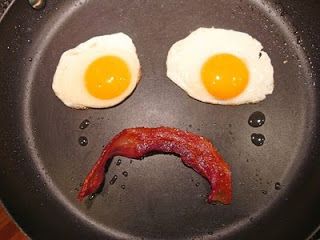The Sad State of Nutrition Science
“But BigDave,” I hear you say. “I just read an article that said low-carb diets will kill you (well, okay, I read the headline on my feed, but the picture was VERY convincing…).”
As Nina Teicholz explains in The Big Fat Surprise, the problem with articles like this one is that they rely on observational studies to draw conclusions. In contrast to a clinical trial (think hypothesis, experimental group, control group, all that science-y type stuff you haven’t thought about since 11th grade), an observational study takes a peek at what’s going on with a big group of people and tries to draw connections.
Observational studies give us ideas like: polio is associated with ice cream consumption, drowning in a pool is related to Nicholas Cage films, and eating margarine leads to divorce (but only in Maine).
The thing is, Teicholz says, it’s impossible to draw definite conclusions from these types of studies. They can only yield hypotheses, which then need to be tested through more rigorous science. It’s that old “correlation is not causation” thing. Without some clear idea of how one thing causes another, it’s impossible to logically claim that a causal relationship even exists.
And yet, that’s what we’ve done with diet info for years. Teicholz dedicates 497 pages to showing that our authorities have written dietary guidelines — specifically the idea that we should avoid saturated fat and cholesterol — based on weak observational studies, while systematically ignoring the clinical trials that prove this advice to be dead wrong.
We keep repeating this mistake, over and over. Every day there’s another sensationalist news story about how some food (red wine, cured meat, coffee, acai berries…) is “linked to” some positive or negative outcome (longer life, cancer, Alzheimers, spending way too much money at Whole Foods…). In many of these studies, the difference between one group and another is extremely small — just a few percent increase. But hey, why let the facts get in the way of a good story?
Next time you read one of these articles, take it with a grain of salt (and a tablespoon of butter). That “link” might not be as strong as it looks.
Note: The ramblings published on this blog are the opinions of the author alone and shared for entertainment purposes only. The author is an English major with no medical or scientific background; thus, his words should never be taken as medical advice. Consult with your doctor or medical professional before undertaking any diet or exercise program.
Note: The ramblings published on this blog are the opinions of the author alone and shared for entertainment purposes only. The author is an English major with no medical or scientific background; thus, his words should never be taken as medical advice. Consult with your doctor or medical professional before undertaking any diet or exercise program.




Comments
Post a Comment